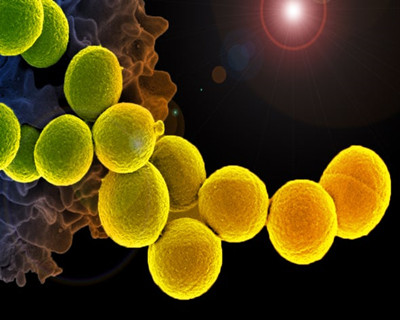(单词翻译:单击)
听力文本
Hi, I'm Scientific American podcast editor Steve Mirsky, and here's a short piece from the April 2019 issue of the magazine, in the section called Advances: Dispatches From The Frontiers Of Science, Technology And Medicine.
The article is titled "Quick Hits," and it's a rundown of some science and technology stories from around the globe compiled by editorial contributor Jim Daley.
From Greenland:
Scientists have found the massive ice sheet covering Greenland is melting almost four times faster than it was in 2003. The gigantic hunk of ice could become a major contributor to sea level rise in coming decades.
From Hawaii:
A 14-year-old Hawaiian snail named George, believed to be the last of its species, has died. The archipelago's population of land snails—which was once incredibly diverse—has substantially declined, with perhaps 75 percent of more than 750 species now gone.
From Guyana:
The Guyanese government signed an agreement with the European Union to curb illegal logging, improve forest management and expand the South American nation's legal timber industry, which exports to the E.U.
From Australia:
Overuse of water from the Murray-Darling River system sparked a massive die-off of fish in the Down Under state of New South Wales. An estimated 100,000 to one million fish suffocated because the river levels were too low to flush out farm runoff. This led to algal blooms that resulted in bacterial proliferation, which caused a drop of oxygen.
From Liberia:
Health officials announced that they found the Ebola virus in a bat in West Africa for the first time. Previously it had been found only in bats in Central Africa. The discovery could help reveal how the virus jumps to humans.

And from Northern Ireland:
Bacteria in a soil sample from Northern Ireland effectively halt the growth of four types of antibiotic-resistant "superbugs," including methicillin-resistant Staphylococcus aureus — better known as MRSA. Researchers say the discovery is an important step in the battle against such resistant bacteria.
That was Quick Hits by Jim Daley.
参考译文
大家好,我是《科学美国人》播客编辑史蒂夫·米尔斯基。以下是收录在本杂志2019年4月刊的一篇短文,摘自“进展:科学、技术和医学前沿快报”版块。
这篇文章名为《要闻快讯》,汇集了全球各地科学和技术新闻报道的摘要,由编辑撰稿人吉姆·戴利汇总。
格陵兰岛:
科学家发现覆盖格陵兰岛的巨大冰盖正在融化,而且融化速度是2003年的4倍。这一巨大冰块可能成为未来几十年海平面上升的主要原因。
夏威夷:
一只名叫乔治的14岁夏威夷蜗牛死亡,据信它是该物种最后一只蜗牛。这个群岛的陆生蜗牛种群——曾具有难以置信的多样性——已经大幅减少,超过750种陆生蜗牛中现在可能有75%已经灭绝。
圭亚那:
圭亚那政府与欧盟签署了一项协议,旨在遏制非法采伐,改善森林管理,并扩大这个南美国家向欧盟出口合法木材产业。
澳大利亚:
墨累-达令河水系的水使用过度,导致澳大利亚南部的新南威尔士州鱼类大量死亡。据估计,由于河水水位过低,无法注入农田径流,致10万到100万条鱼因窒息而死亡。这导致藻华,继而致使细菌繁殖,最终使氧气量下降。
利比里亚:
卫生官员宣布他们首次在西非蝙蝠身上发现埃博拉病毒。此前只有中非蝙蝠身上发现过这种病毒。这一发现可能有助于揭示该病毒是如何传染给人类的。
北爱尔兰:
北爱尔兰土壤样本中的细菌有效地阻止了四种耐抗生素“超级细菌”的生长,这些细菌包括耐甲氧西林金黄色葡萄球菌——更广为人知的名字是MRSA。研究人员表示,这一发现是对抗此类耐药细菌的重要一步。
以上是吉姆·戴利汇总的《要闻快讯》。
译文为可可英语翻译,未经授权请勿转载!
重点讲解
重点讲解:
1. flush out 冲刷;
In this way, it does not wait for syncd to flush out pages to disk.
采用这种方式,它无需等待syncd将页面写入到磁盘。
2. lead to 招致;致使;导致;
This can lead to bodily weakness and muscle wastage.
这样可能会导致身体虚弱和肌肉萎缩。
3. result in 导致;引起;造成;
Fatigue and stress quickly result in a dull complexion and a furrowed brow.
疲劳和压力会很快导致肤色暗淡无光、额头出现皱纹。
4. for the first time 第一次;首次;
For the first time in my career, I was failing.
我职业生涯中第一次经历失败。


